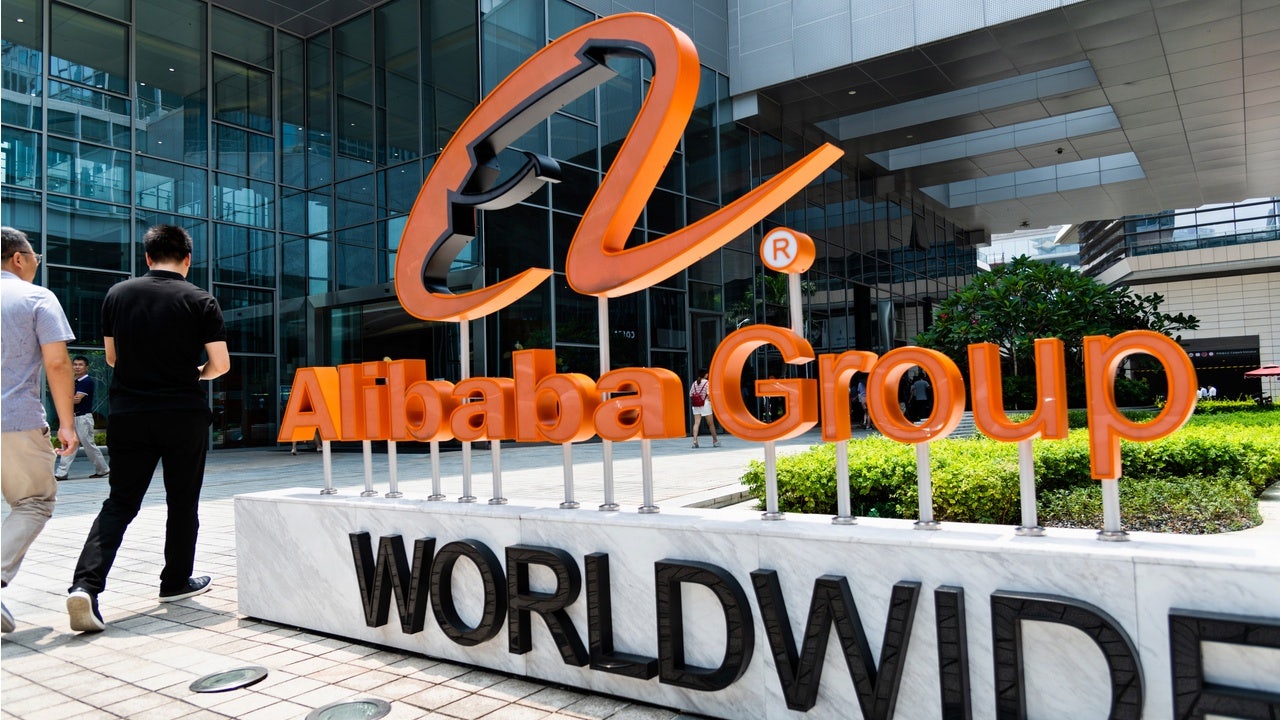Update published on December 24, 2020:#
On December 24, the State Administration for Market Regulation initiated an antitrust probe into the Alibaba Group over its “choose one of the two” competitive policy. Alibaba confirmed the investigation in a statement issued on the same day. In it, it said that it will actively cooperate with the regulators, and the company’s business operations remain normal.
The Chinese public is curious about the timing and its relevance toward Jack Ma’s criticism over China’s market regulations in his public speech in late October, especially given that “choose one of the two” has long been a prevalent rule under the table for e-commerce merchants. The company policy first entered the public eye during the Double 11 Shopping Festival in 2015, when its biggest rival JD.com reported to the State Administration for Industry and Commerce that Alibaba asked merchants to “choose one of the two” for the latter’s third-party e-commerce channels.
Alibaba’s shares on New York Stock Exchange have fallen over 17.5 percent since the beginning of November.
Update published on November 3, 2020:#
Ant Group's $34.5B IPOs in Shanghai and Hong Kong have been temporarily suspended.
The shocking news came a day after regulatory agencies summoned the company's controlling shareholder Jack Ma, executive chairman Eric Jing, and CEO Simon Hu to a closed-door meeting.
The Shanghai Stock Exchange cited the meeting as a reason to postpone the IPO.
"Your company has also reported significant issues such as changes in the financial technology regulatory environment. These issues may result in your company not meeting the conditions for listing or meeting the information disclosure requirements," read a statement from the Shanghai Exchange.
On Monday, the South China Morning Post reported that the PBOC (People’s Bank of China) and CBIRC (China Banking and Insurance Regulatory Commission) issued new draft rules for online micro-lending in “a move that could curb the profits of the country’s fintech giants and stem the flow of funds to small businesses.”
Interestingly enough, the regulatory tightening comes days after Jack Ma denounced global financial regulations and said that China “lacks the risk of a healthy financial system. What we need is to build a healthy financial system, not systematic financial risks. To innovate without risks is to kill innovation. There's no innovation without risks in the world.”
It can reasonably be argued that this retaliatory move comes as a response to these Jack Ma’s comments.
Original article published on August 26, 2020:#
What happened
On August 26, Ant Group, the financial technology arm of Alibaba, filed documents for IPOs on stock exchanges in both Hong Kong and Shanghai. According to analysts, this could be the largest global IPO ever recorded. The exchange filling shows that the fintech giant has posted a profit of 21.9 billion Chinese yuan ($3.2 billion USD) on total revenues of 72.5 billion yuan ($10.5 billion USD) in the first half of 2020. According to CNBC, Ant Group’s first-half year profit rose a staggering 1,000%. With this in mind, Ant Group targets a market valuation of more than $200 billion.
Jing Take:#
The dual listing sends a clear message to entrepreneurs that were already looking for alternatives to Hong Kong, though the future of the former British colony as a financial hub remains secure, as China has no intention to sacrifice the city. Winning global recognition and a place among titans could also help the Alibaba Group reinforce its standing in the local Chinese market, which could help the Alibaba Group reclaim some of its users lost to Tencent. However, snubbing the New York Stock Exchange for Hong Kong and Shanghai is yet another strong signal that China is not backing down from its ongoing fight with the Trump administration. More importantly, it tells the business community that in these highly contentious days, the New York Stock Exchange is becoming an increasingly dicey option; thus, local contenders are becoming a strategic option that have their own set of competitive strengths. Given this, will more and more Chinese companies follow in Ant Financial’s footsteps, choosing to list in the home market, or even more drastic, delist from the NYSE?
The Jing Take reports on a piece of the leading news and presents our editorial team’s analysis of the key implications for the luxury industry. In the recurring column, we analyze everything from product drops and mergers to heated debate sprouting on Chinese social media.
